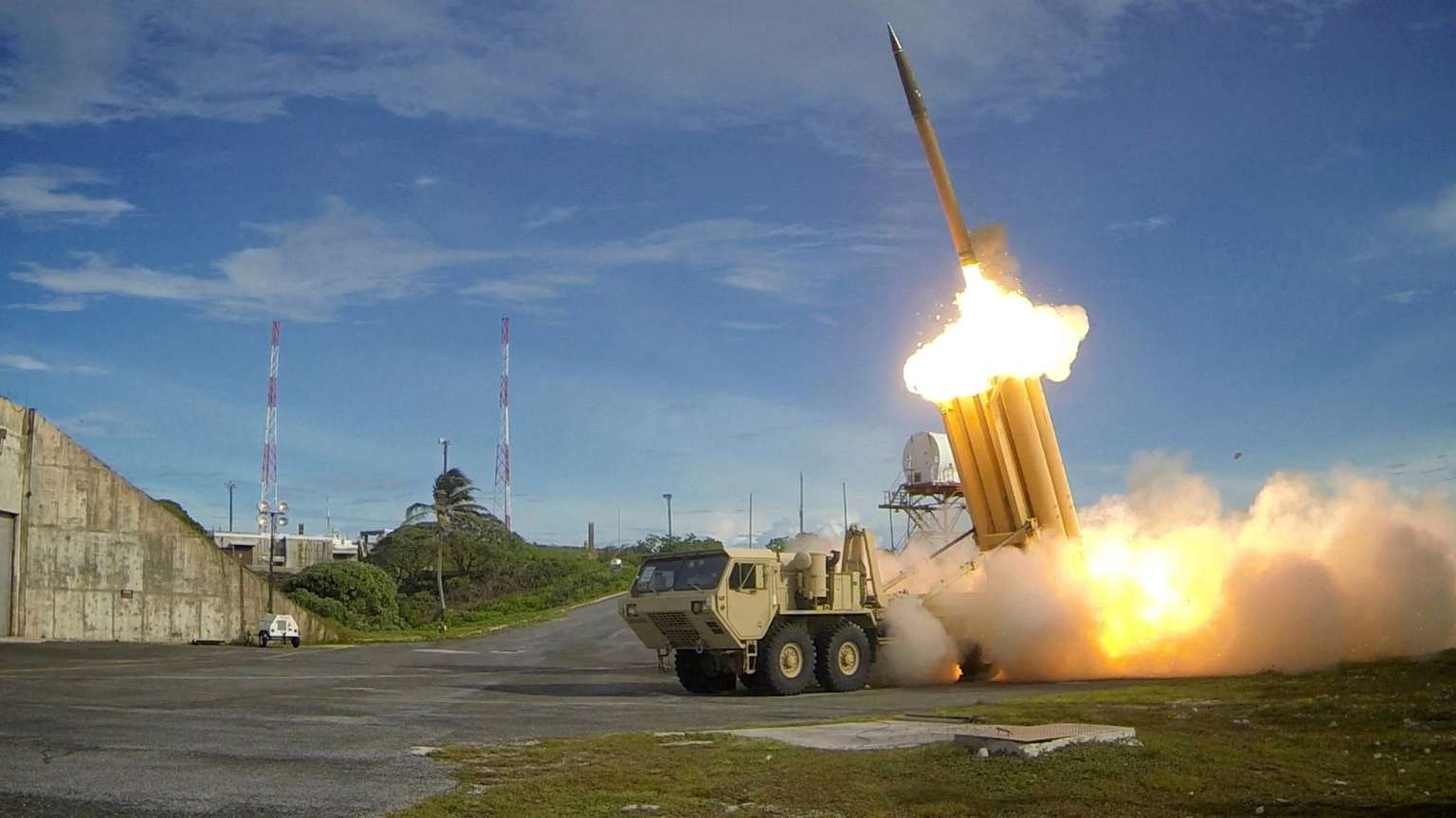South Korea says it still plans to deploy US Thaad anti-missile system
Sign up now: Get insights on Asia's fast-moving developments

A Terminal High Altitude Area Defense (Thaad) interceptor is launched during a successful intercept test, in this undated handout photo provided by the US Department of Defense, Missile Defense Agency.
PHOTO: REUTERS
Follow topic:
TOKYO (WASHINGTON POST) - South Korea said on Monday (April 17) that it still plans to host an advanced American anti-missile battery, and to get it operating as soon as possible, as Vice-President Mike Pence arrived in the country for meetings with political leaders.
Plans to deploy the Terminal High Altitude Area Defence (Thaad) system have been controversial in South Korea, with some worried that it would make the South more of a target for North Korean missiles, and others concerned about the economic revenge being exacted by China.
The issue is expected to be near the top of the agenda on Monday when Pence meets with Hwang Kyo Ahn, South Korea's acting president, and the speaker of the parliament.
Hwang has less than a month left before a snap presidential election will be held on May 9 to replace Park Geun Hye, who was impeached last month, and the front-runner has vowed to review the Thaad decision.
"There is no change in the basic position of South Korea and the US to proceed, as planned, with the preparations for the early operation of the Thaad system against North Korea's advancing nuclear and missile threats," Moon Sang Gyun, a spokesman for the Ministry of National Defense, said at a news briefing Monday morning, according to local reports.
Park's conservative government agreed to deploy Thaad, after much equivocation, in July. China strongly objects to the Thaad battery - in particular its radar system, which Beijing worries will be used to peer into China.
Beijing has made its unhappiness known with a wide economic boycott that includes K-pop concerts, toilet-seat imports and tour group travel to South Korea.
But Moon Jae In, a progressive presidential candidate who had been leading in polls, has promised to review the previous government's decision to host Thaad. Apparently sensing a worsening political environment, the US military sped up the deployment to try to get everything in place before the election.
But now Moon faces a strong challenge from a more centrist candidate, Ahn Cheol Soo, who has said that he will respect the Park administration's agreement with the United States.
Pence expects the issue to come up during this trip."It's a critical point for the defence of South Korea in recognising it's not an offensive weapon. It's there to prevent rockets slamming from the North Koreans," a White House official said while previewing the trip.
The complicating factor here is China. It wants the missile battery gone, and the United States wants China to crack down on North Korea.
Although President Donald Trump had a cordial summit with his Chinese counterpart, Xi Jinping, in Florida this month, the North Korea issue threatens to drive a wedge between them.

